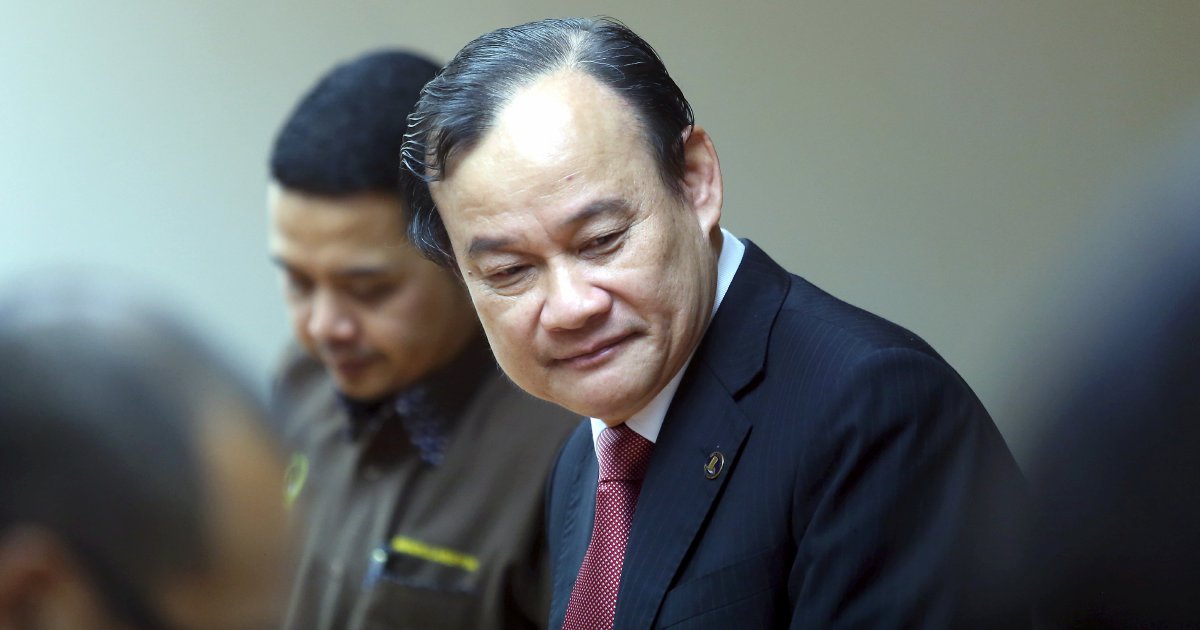
A recent Twitter feud has ignited over a question raised by a Malaysian netizen, criticizing DAP MP YB Dato' Ngeh Koo Ham of Beruas for allegedly making Muslims uncomfortable with his inquiries.
Soalan MP DAP sebeginilah buat orang Islam semakin rasa tidak selesa dengan mereka
— Fairuz 法瑞斯 فيروز (@fairuz_azmi83) June 12, 2023
And then you blame others for your ignorance and insensitivity. pic.twitter.com/Cv6MDCX0l2
The controversy ensued during a Dewan Rakyat session when the MP sought clarifications from the Prime Minister regarding the recognition of marriages between Malaysian Muslims and non-Muslims solemnized abroad.

In response to the question, YB Senator Dato' Setia Dr. Haji Mohd Na'im bin Haji Mokhtar, the Minister in the Prime Minister's Department (Religious Affairs), stated that marriages involving Muslims and non-Muslims are not allowed and not recognized under the law. He cited specific sections from the Akta Membaharui Undang-Undang (Perkahwinan dan Perceraian) 1976 [Akta 164] and the Akta Undang-Undang Keluarga Islam (Wilayah-Wilayah Persekutuan) 1984 [Akta 303] that restrict such unions.

Section 3(3) of the Akta Membaharui Undang-Undang (Perkahwinan dan Perceraian) 1976 states that the Act does not apply to Muslims or anyone married under Islamic law, and no marriage can be solemnized or registered under this Act if one party practices Islam. Similarly, for Muslims, Section 10 of the Akta Undang-Undang Keluarga Islam (Wilayah-Wilayah Persekutuan) 1984 prohibits men from marrying non-Muslim women and women from marrying non-Muslim men.

According to Islamic law, if a Muslim wishes to marry a person of a different faith, the non-Muslim partner must convert to Islam first. The prohibition of interfaith marriages between Muslims and non-Muslims is based on the belief that Muslims should not marry polytheistic or idolatrous individuals. This is derived from the Quranic verse, Al-Baqarah: 221, which emphasizes the importance of believers marrying fellow believers.
The exchange of questions and answers quickly became a subject of intense online debate.

Fairuz's Twitter post criticized the MP, stating that such questions make Muslims uncomfortable and accused him of ignorance and insensitivity. Netizens defended the MP's right to ask questions for better understanding.

Many netizens questioned Fairuz's motives, pointing out that he had cropped out the photo showing the MP's query. They accused him of deliberately creating a negative narrative by not providing the full context of the discussion. Some suggested that Fairuz should be grateful to the DAP MP for initiating the question, as it offered a chance for better understanding and clarification. They emphasized the importance of asking questions in the right context and seeking knowledge from reliable sources instead of making assumptions.

The incident sparked a broader conversation about religion, highlighting the need for proper understanding and education on matters related to faith. Netizens stressed that discussing matters of religion requires a deep comprehension and should not be based on common sense alone. They urged for open dialogue and constructive engagement when addressing questions about religious practices, particularly when non-Muslims seek clarification.





